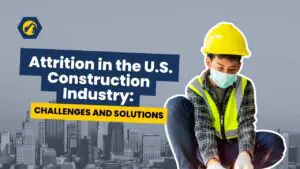
When considering outsourcing talent acquisition nearly every company I speak with for the first time focuses solely on one aspect: the bottom line; COST. I mean who can blame them. I am always looking for the best deal (though sometimes to a fault). I understand and can empathize with potential clients. That being said, when I spend enough time speaking with them regarding their need and why it makes sense for them to invest tens of thousands of dollars on a search I discover that what they are truly seeking is value. Value being their return on investment.
The secret to finding your best return on investment when deciding which recruiter to work with is by investing sufficient time with potential recruiters to thoroughly vet them. In this article I will share what to look for and what to watch out for in finding a trusted partner in talent acquisition.
What to look for when researching executive search firms or recruitment agencies:
1. Industry Expertise
One of the most important ways to narrow the field is by identifying a firm or an individual that is unique to your industry and knowledgeable of the market in the geographic area you operate. The more narrowly focused the better, look at our specialized areas of expertise here. A good talent acquisition partner will be familiar with you and your market. If your company has decent exposure, a great question for a recruiter is to ask them what they know about your company. Who does the recruiter perceive as your potential competitors?
2. Is the recruiter going to do the hard work?

You can pull resumes off the internet and post jobs on job boards without paying high recruiting fees (check out our other blog: Why your Internet Job Postings Aren’t Yielding the Results That You Expect). You as a client should expect more from your recruiting partner. In interviewing a potential recruiter, ask them to explain their methodology for sourcing and vetting candidates. Are they searching for active or passive candidates? How are they going to conduct the search? True recruiters are active in recruiting passive candidates. This requires proactive contact with candidates and the development of long-term relationships. Also, is a recruiter using an outsourced company to try to recruit more candidates? I have had countless overseas companies soliciting outsourced recruiting. You should know who will be working on your search and be comfortable with them representing your company as you would want them to.
3. Is the recruiter invested in truly knowing the company and the need?
In industries that require good recruiters to go out and source passive candidates the recruiter will need a good “sales pitch” or the carrot at the end of the stick per say, to influence those candidates to engage in the interview process. Here’s how you can make an excellent elevator pitch. A good recruiter, at minimum, will need an understanding of the overall business plan of the company, the culture, things that make the company unique compared to their competitors, and the potential for a candidate’s future career development within the organization. When identifying a new recruiter, the recruiter should spend at minimum a half hour getting to understand the client and the need. I often find myself spending an hour or more even with companies that I have done business with in the past gathering critical sales information to ensure candidate engagement in tight employment markets.
4. Understand Each Other’s Expectations

What do you expect out of your recruiter? Before you go out and interview/vet a potential partner, write down what your expectations are for a partnership. Try to be specific. Some good questions would be:
- When can we expect to start seeing candidate’s resumes?
- Roughly how many candidate’s resume will you produce?
- Can we expect to have 3 candidates that meet the standards we discussed?
- What salary do you expect this position to command?
- How do you vet candidates?
- When you send a resume what additional information can we expect to have in the email?
- Do you check references and if so when?
A good recruiting partner will also share their expectations of you as a client to ensure a good working relationship.
5. What Does Your Gut Say?
You deserve to like the people you give your business to. How do you feel about the recruiter? Do you feel like they are honest and carry integrity or do they come of as the bad car salesman with a “What can I do to get you in this car today?” attitude. Remember that it is your recruiter’s job to go out and build rapport with candidates. If the recruiter is pitching a hard sell that turns you off, they will likely have the same effect on those that they are recruiting. You must trust them to represent your company and your interest with honesty and integrity.
6. Contingency or Retained Search?
This is a difficult question to answer. Depending on how much time and resources will be required to fill the position a recruiter may ask for a retainer. Another reason that a recruiter may push for a retainer is to limit the competition of other recruiters attempting to fill the same position. Many searches warrant a retainer.
I, however, recommend that with new relationships you work on a contingency basis to minimize your risk. In a month or two, if the recruiter is doing fine work, bringing good candidates to the table, and your expectations are being met, then you can always shift to a modest retainer search.
7. Don’t Dilute Your Efforts
Don’t hire a handful of recruiters to fill the same position. If you’re working with commission-based recruiters then a good recruiter will base the amount of effort they put into a search on their likelihood of filling the position. When a recruiter finds out that multiple recruiters are working with the same client on the same position they may altogether disengage and work on more promising prospects.
It can also reflect poorly on the company when the same candidate is contacted by multiple recruiters for the same position. Candidates will likely think that the company is disorganized or desperate.
In the end, it will cost you more time to develop multiple relationships with strong recruiters to help them thoroughly understand the company and the position.
8. Don’t Skimp on the Fee

As I mentioned at the beginning of the article, almost all of my clients are driven by cost and looking for the best deal. However, getting a recruiter to a lower rate may actually backfire. A recruiter may be inclined to present the best candidates to a higher paying client. In all reality it may not be worth the few thousand dollars you save on a fee for a second-tier candidate.
Lower fees may also diminish the focus and time/effort that your recruiter needs to spend to successfully fill the position with the best candidate. You will likely see less candidates or undesirable candidates if the recruiter is not investing as much time on the search. Lower fees may put you lower on a list of the recruiter’s priorities. If you want a recruiter’s full attention, secure their priority with a retainer or full fee contingency search.
In the end hiring a great person with the unique skill sets you need will help your company make money, save money, and solve problems. They will bring your organization value that far exceeds the cost of the search/placement.
I hope this article is helpful in you finding a trusted talent acquisition partner and establishing a meaningful and successful relationship. Please check out our blog section as we will be publishing more tips for advice for hiring managers throughout 2020. If you are in the heavy civil sector please give me a call at 828-515-4272 x1. We would be happy to invest some time with you to help you in getting the best value for your recruiting dollars.
By: Taylor Maurer
Taylor Maurer runs the talent acquisition firm HCRC as senior managing partner. He is a professional heavy civil construction recruiter dedicated to attracting and retaining high quality talent.






